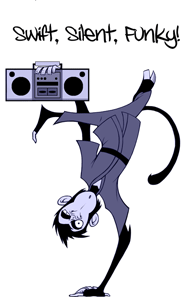 |
| That is one optimistic monkey. |
During the week, we listened to our thoughts following bad events and completed six Daily Mind Games to try to shift our brains from a pessimistic state to an optimistic one. Guided by research summarized in Learned Optimism, we tried to avoid thinking about things in a permanent, pervasive, or personal way.
My homunculus is still cranky, but less so. Why don't you see how your homunculus responds?
Week of Optimism
Day 1: Hear the Homunculus - Listen to your automatic thinking.
Day 2: Ignore the Homunculus - Put a nasty homunculus in time-out.
Day 3: Temporary - Nothing lasts forever, bad stuff included.
Day 4: External - It's not always about you.
Day 5: Specific - Stop catastrophizing.
Day 6: Take Control - Escape the shock.
Whew! I'm all tuckered out from all this metacognition and self-improvement that I need to unwind. Don't you? Next week, we're going shed our go-go-go mentality and try to relax. But, worry not, partner-in-metacognition, we'll have our usual Daily Mind Games, but each day we're going to try to relax more and more. After next week, you might be able to cancel your next vacation. Another joke!
An old classic that discusses the science of relaxation is The Relaxation Response . While the "science of relaxation" may not sound relaxing at all (dramatic pause), the book is a great source of information about how to achieve a state of relaxation and the positive effects this state can have on our health and mood. The book is a bit out-dated, but the main points still ring true. The Daily Mind Games for next week have been inspired by this book.
. While the "science of relaxation" may not sound relaxing at all (dramatic pause), the book is a great source of information about how to achieve a state of relaxation and the positive effects this state can have on our health and mood. The book is a bit out-dated, but the main points still ring true. The Daily Mind Games for next week have been inspired by this book.
What's the point you may ask? Well, our minds don't exist independently of our bodies. In fact, our mental state can directly impact our physiology (our brains are an organ, after all) and vice versa. For me, I'm always wound a bit tight - I'm kind of a nervous dude. This seems to have given me a touch of the high blood pressures. But, I'm not nervous about being nervous, the strategies in The Relaxation Response have been shown to reduce both blood pressure and other biomarkers of stress. Joy!
have been shown to reduce both blood pressure and other biomarkers of stress. Joy!
Links: Check out other Weeks of Metacognition
Links: Check out other Weeks of Metacognition

















